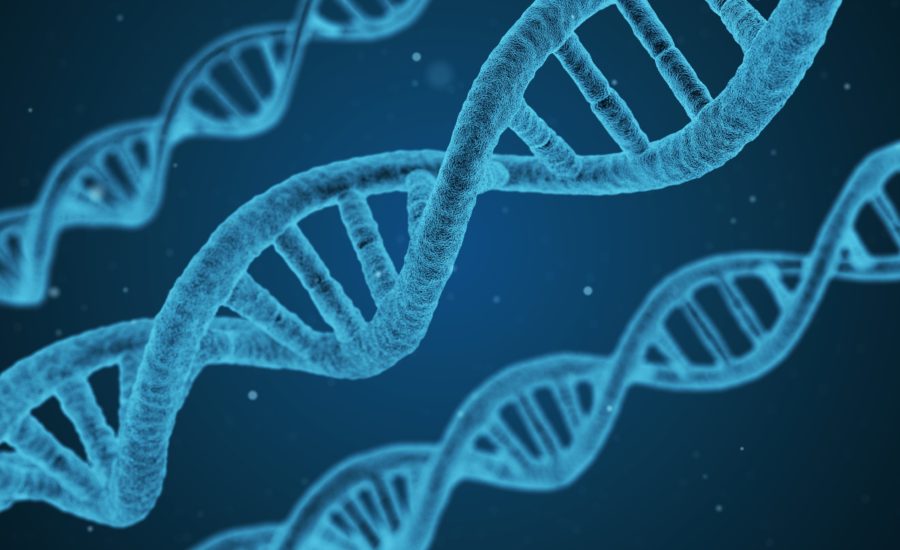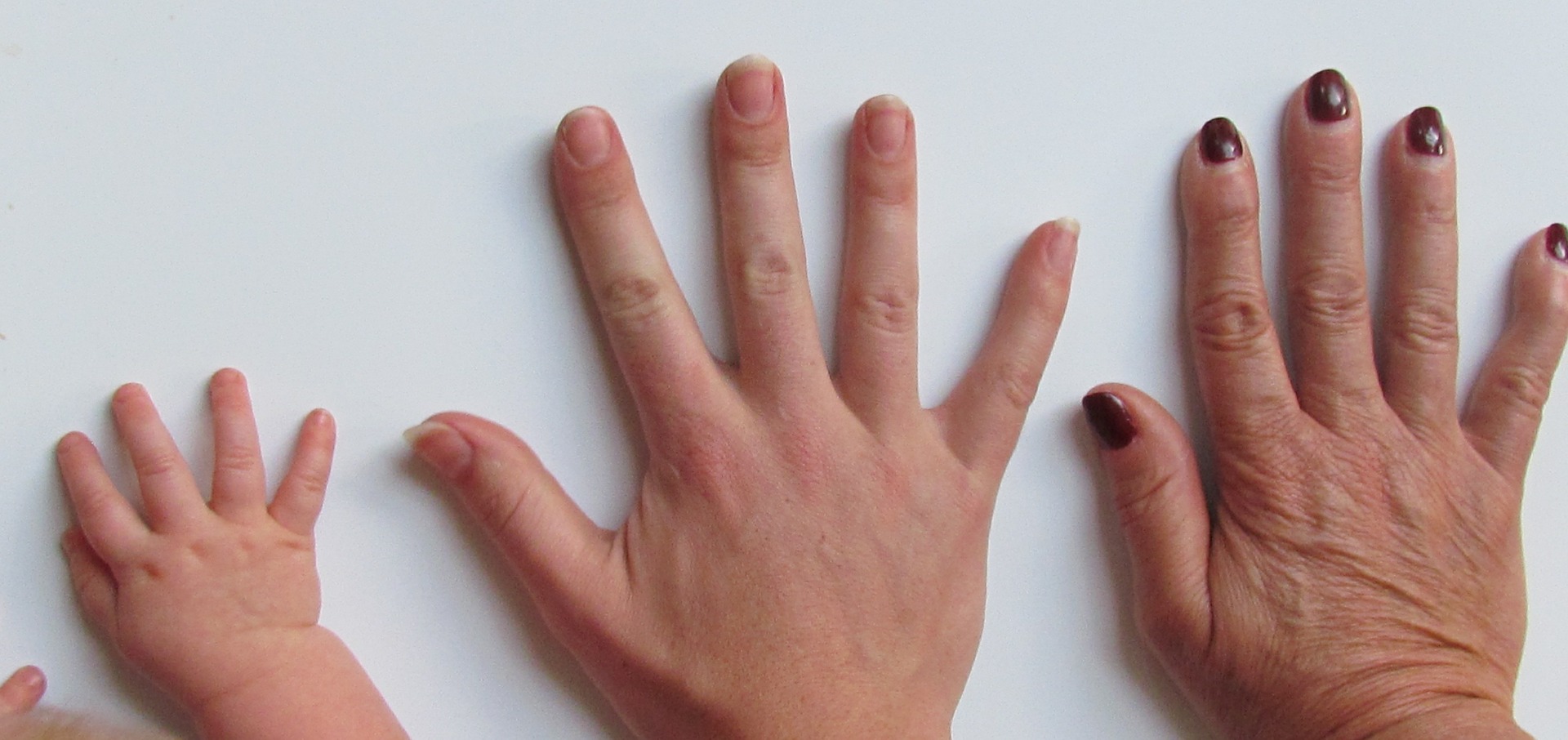Detect
These Genetic Mutations Can Lead to Breast Cancer

Undetected gene mutations passed down through family can play a major role in your health.
BRCA1 and BRCA2 are tumor suppressor genes linked to developing certain cancers at an earlier age. According to a recent study published in JAMA, women who test positive for these genetic abnormalities may have a much higher risk of developing a combination of:
- Ovarian cancer
- Breast cancer
- Contralateral breast cancer (a tumor found in the opposite breast 6 months after the first diagnosis)
Knowing your family medical history, genetic testing, and a healthy lifestyle can help you and your doctor manage the cancer risk factors in your control.

Breast Cancer Risk & BRCA Mutations
The proteins produced by BRCA1 and BRCA2 genes play an important role in your body, including DNA repair.
When mutations prevent these genes from working properly, the damaged DNA increases the risk of mutations that can lead to cancer growth.
During the study on these genes, an international team of researchers analyzed data from 6,036 BRCA1 and 3,820 BRCA2 female carriers.
After a 5-year follow-up, the results showed:
- Women with BRCA1 mutations had a 72% risk of developing breast cancer by age 80
- The risk for BRCA1 carriers increased rapidly after age 30
- Women with BRCA2 mutations had 69% increased risk
- The risk for BRCA2 carriers developed after age 40.
For contralateral breast cancer, BRCA1 carriers had a 40% risk of developing cancer on the other breast 20 years after the original diagnosis. This risk was 26% for BRCA2 carriers.
For both genes, patients diagnosed with breast cancer at ages 40 to 50 or older had a lower risk of developing contralateral breast cancer.
Ovarian Cancer Risk Higher for BRCA1 Mutations
According to the National Cancer Institute, about 1.3% of women will develop ovarian cancer sometime during their lives.
Researchers linked an increase risk of ovarian cancer by age 80 to both BRCA mutations. However, the risk was much higher for women with BRCA1 mutations (44%) compared to BRCA2 carriers (17%).

Relatives with Breast Cancer Could Mean Increased Risk
According to the study, breast cancer risk increases greatly by having other family members with breast cancer, as well. Having several diagnosed first-degree relatives (mother or sister) and second-degree relatives (aunt or grandmother) is an indicator that these genes may run in your family.
However, for ovarian cancer, family history does not appear to make a difference. This means that even though BRCA mutations increase cancer risk, there are other factors involved.
The United States Preventive Services Task Force recommends genetic testing for women who have family members with breast, ovarian, fallopian tube, or peritoneal cancer.
A genetic counselor can help assess parts of your personal or family history potentially linked to BRCA mutations, such as:
- Relatives with breast cancer diagnosed before age 50
- Relatives with cancer in both breasts
- Occurrences of both breast and ovarian cancers in the same relative or within your family
- Cases of male breast cancer
- Being of Ashkenazi Jewish ethnicity
This information can help your doctor determine the best prevention and treatment options for you and your family.
The National Cancer Care Network (NCCN) recently adopted guidelines for high-risk patients with BRCA1 and BRCA2 gene mutations.
Mutations Other Than BRCA
While BRCA1 and BRCA2 are the most common mutations that occur in breast cancer patients, recent studies are identifying new genetic variants that lead to the disease. A study conducted in 2017 analyzed genetic information from 275,000 women (with half diagnosed with breast cancer). DNA sequences at more than 10 million sites across the women’s genome were compared between women with breast cancer and without cancer. The 65 new variants identified may distinguish a small population of women who are at a significantly higher (up to 3x) risk of breast cancer, according to one of the study’s authors Peter Kraft.
Managing BRCA Mutation Risks
If a test identifies a BRCA1 or BRCA2 mutation in your family, there are several options for managing this cancer risk. These include enhanced screening, prophylactic (risk-reducing) surgery, and chemoprevention.
Screening
Doctors may recommend that women who test positive for BRCA mutations start annual screening for breast cancer at a much younger age. Preventative screening recommendations include:
- Learning to be aware of changes in breasts, starting at age 18
- Clinical breast exam every 6-12 month and annual breast MRI starting at age 25
- Annual breast MRI with contrast and mammograms at ages 30-75
Women with these genetic risks should ask their health care provider about the possible harm of screening tests that use radiation (like mammograms or x-rays).
There are unfortunately no ovarian cancer screening methods currently considered effective. Transvaginal ultrasounds and CA-125 blood tests provide “uncertain benefit,” but may be recommended by your doctor at ages 30-35.
Risk-reducing surgery
Prophylactic surgery involves removing as much of the “at-risk” tissue as possible.
Keep in mind that surgery does not guarantee that cancer will not develop. Unfortunately, not all at-risk tissue can be removed. But research has shown that at-risk female patients who had their fallopian tubes removed experienced:
- Nearly 80% risk reduction in dying from ovarian cancer
- 56% risk reduction from breast cancer.
Risk-reducing medication
Hormone therapy may be recommended to block the effect of estrogen on breast tissue.
Oral contraceptives (birth control pills) are thought to reduce the risk of ovarian cancer by about 50% both in the general population and in women with BRCA mutation.
A healthy lifestyle
Genetics are beyond our control, but healthy habits can help. Staying active and practicing a healthy diet are key to cancer prevention. See our article on the best lifestyle changes you can make to reduce cancer risk.
-Alexander Kirichenko, MD PhD





